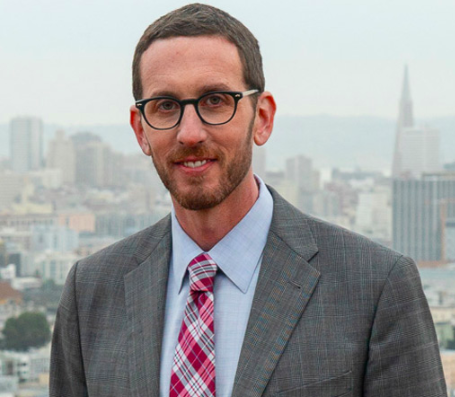State Senator Scott Wiener has proposed yet another change to the California Environmental Quality Act, the state’s signature environmental law. The bill, known as Senate Bill 1227, would exempt from CEQA review most new development in San Francisco’s downtown—broadly defined to extend all the way to City Hall—for ten years.
Although the legislation would not cover hotels, waterfront development, hazardous waste, or demolition of historic buildings, it appears to otherwise offer a blank check to developers in the city for most projects—no matter their environmental consequences.

The bill begs several questions: Are these changes justified? And if the Legislature carves out such a large CEQA exemption for one of California’s largest cities, where will this end? Given the constant, decade long assault on CEQA from Sacramento and the media, this legislation appears to be a stalking horse for eviscerating CEQA entirely. Already, the Orange County Register is calling for the “exemption [to be] expanded on an emergency basis to … everywhere.”
No one questions that downtown San Francisco is struggling. But these economic problems—empty offices following the pandemic—have nothing to do with CEQA. As Roland Li of the San Francisco Chronicle notes, “other factors are at play. New construction has nearly frozen in San Francisco since the pandemic, amid consistently high labor costs, elevated interest rates, and weakening demand for both apartments and commercial space.”
City records show there are now more than 58,000 entitled housing units that remain unbuilt in San Francisco. These projects completed the environmental review process but were never constructed due to economic factors.
Yet, Senate Bill 1227 would have no impact on any of these factors. Weakening CEQA is not the way to restore downtown, but a gift to developers who have long sought a free pass from any environmental regulation.
Wiener insinuates that downtown development doesn’t raise environmental issues because that area is just a “concrete jungle.” The senator forgets that people live and work in this “jungle,” and that CEQA plays a crucial role in keeping the area safe and healthy.
Because of CEQA, developers must reduce projects’ air, water, and noise pollution. They must design projects to avoid soil contamination and to protect urban parks and playgrounds. CEQA is the principal state law that requires developers to curb their projects’ emission of climate -harming greenhouse gases.
Help us save local journalism!
Every tax-deductible donation helps us grow to cover the issues that mean the most to our community. Become a 48 Hills Hero and support the only daily progressive news source in the Bay Area.
Exempting entire neighborhoods from CEQA’s protections will have serious environmental justice implications. Low-income communities of color living in South of Market and the Civic Center, or adjacent to Senate Bill 1227’s downtown CEQA exemption zone in Chinatown and the Tenderloin, will be left without a meaningful vehicle through which to raise concerns about air pollution, pedestrian hazards, traffic, noise, and other impacts that could seriously erode public health and safety. These residents are some of the most vulnerable and deserve CEQA’s protection.
Wiener claims that new downtown projects will be delayed by “years of potential litigation and appeals” if CEQA is not removed. This is a red herring. A recent study by The Housing Workshop found that in 2018 2020, the city of San Francisco prepared only seven environmental impact reports citywide.
Researchers further found that the number of CEQA lawsuits filed each year is very low statewide: between 2013 and 2021, only 1.9 percent of all projects requiring environmental review faced legal challenges. And, as Supervisor Aaron Peskin explained, from 2016 to 2020, only 0.4 percent of CEQA determinations were subject to appeal. Finally, the most recent CEQA study shows that, between 2019 and 2021, hardly any development projects in the downtown area covered by SB 1227 were subject to CEQA litigation. This hard evidence proves there is no justification for the proposed exemption.
Nor has CEQA harmed or slowed San Francisco’s past growth. During the 50+ years CEQA has been in place, many of its landmark buildings were constructed, such as the Moscone Center, Davies Symphony Hall, the Asian Art Museum, Yerba Buena Center for the Arts, SF Museum of Modern Art, Salesforce Tower, and numerous other modern skyscrapers. CEQA did not hinder these projects or stifle the city’s economic development in any way. Indeed, before the pandemic, the San Francisco/Oakland metro area had the second highest GDP growth rate in California, just behind San Jose.
Under Senate Bill 1227’s carte blanche approach, environmental protections that accompanied this past downtown development would be almost completely absent from public decision making. It is well known that San Francisco is contemplating large and impactful projects in the near future—like a major new university or a potential soccer stadium. CEQA will be needed more than ever to ensure this development is safe and thoughtful.
Specific circumstances may warrant limited CEQA reform to address particular, well-defined types of projects. Senate Bill 1227, however, creates an exemption for nearly every sort of project throughout an entire geographic area. This overly broad approach would set a dangerous precedent for California’s most important environmental law, all while ignoring the myriad true causes of downtown San Francisco’s economic woes.
Ruby Acevedo is a senior staff attorney at Communities for a Better Environment, where she serves as a litigator and community lawyer. Before joining CBE, she spent many years defending low-income tenants in unlawful detainer proceedings, enforcing California’s habitability, environmental, and land use laws. Douglas P. Carstens is board president of the Planning and Conservation League and managing partner of Carstens Black & Minteer LLP. His law firm specializes in environmental, land use, municipal, and natural resources law.



